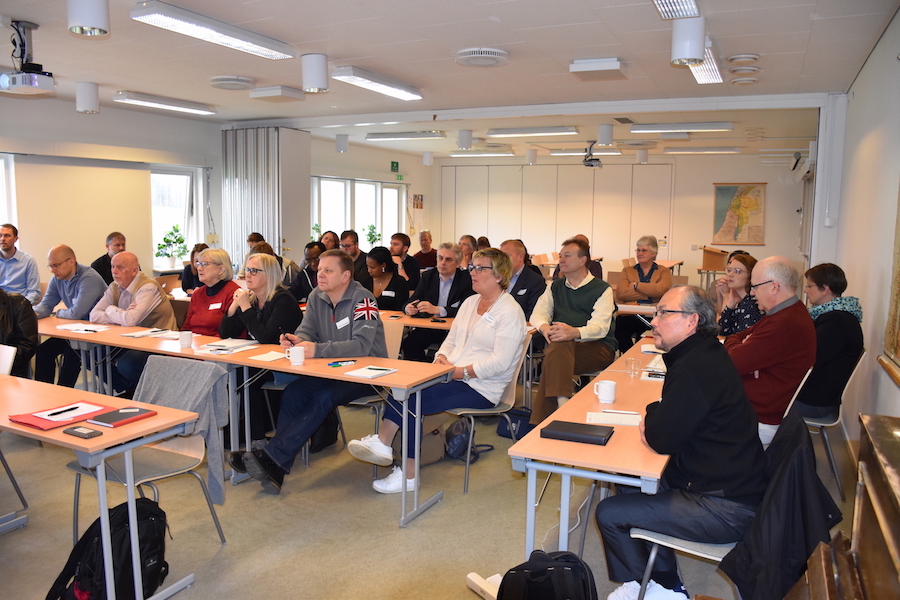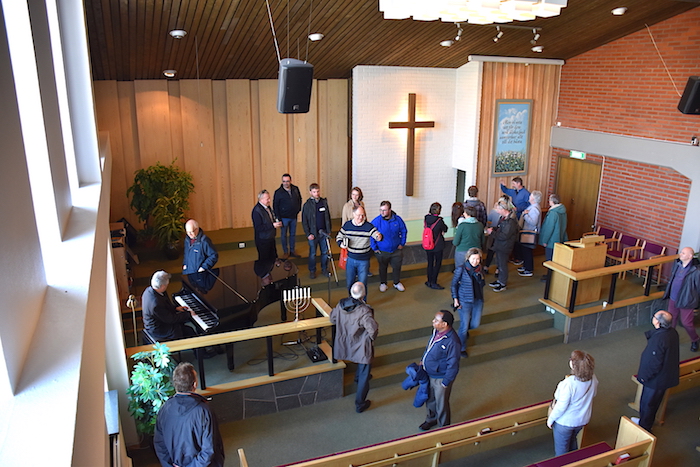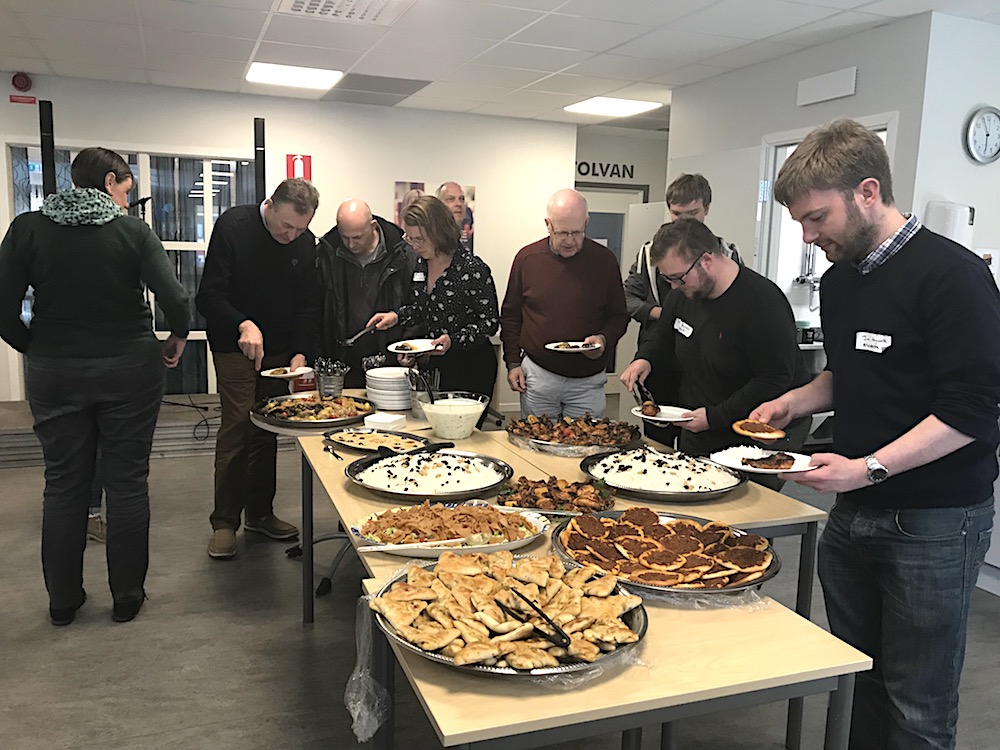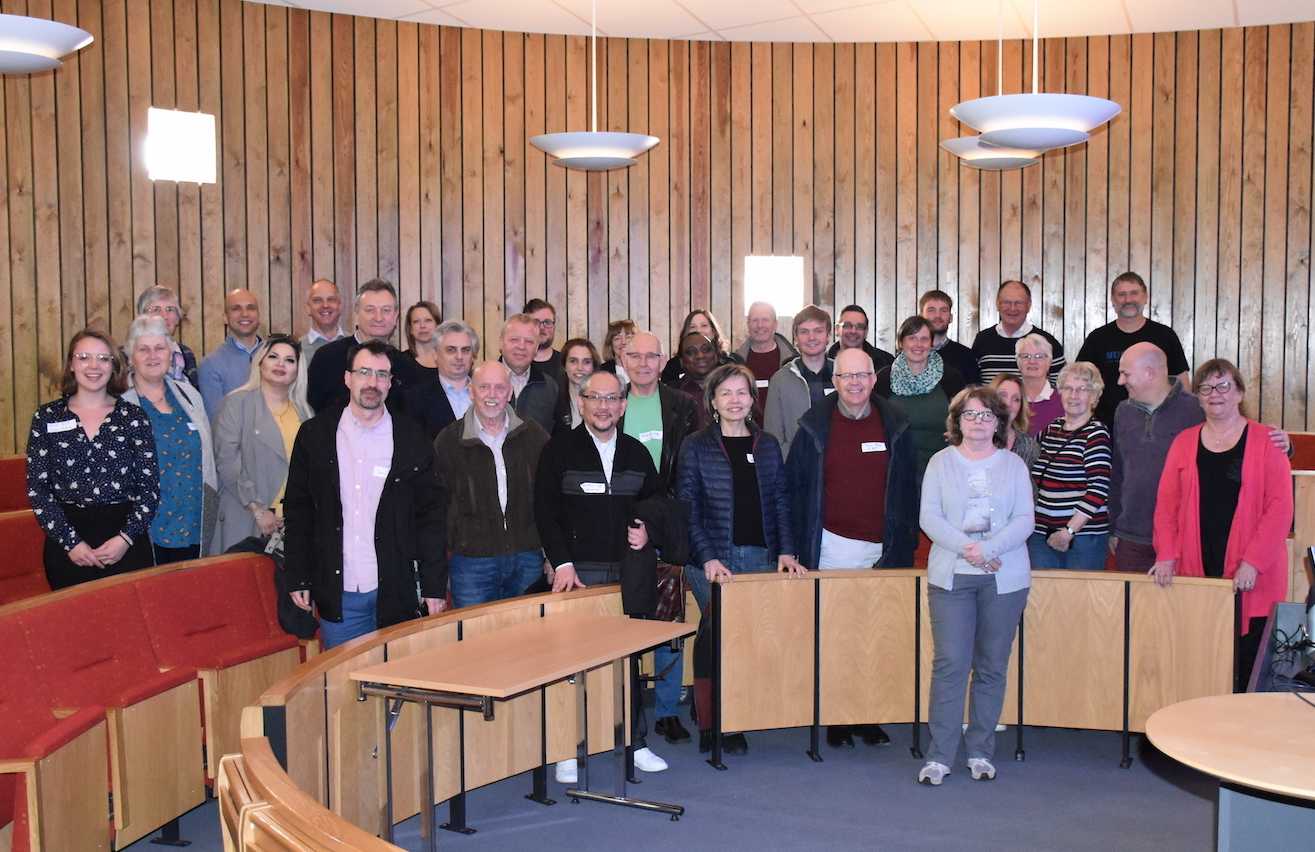EBF Refugee Integration Conference
EBF Refugee Integration Conference
25-28 April 2018, Götebro Study Centre, Sweden

We began our reflections by looking at the story of Ruth, perhaps the first success story of a refugee. We noted that Ruth had a ‘mentor’ (Naomi) to the new culture and that Boaz let her become part of the community. Ruth received enough help but not too much; she was given space to grow and create her own life. We also looked at some aspects of the triune God. Helpful ideas were of oneness and diversity, of community without uniformity. We learned that to live in harmony requires both movement and space. There are lessons for churches, many of which are mono-cultural. How do we need to change to allow refugees to be integrated and for them to feel at home?

Next we were off to the much larger town of Orebro. The district we visited is one of the most deprived areas in Sweden with poverty, unemployment, crime and extremism as some of its problems. Here we found a Folkshögskola, run by the church. This is a high school for older students to enable them to complete high school, something they did not do at the correct age for whatever reason. 
On the final day we heard more about experiences in different countries – issues of places where there are large refugee camps, where there is a war in progress, where immigration authorities are tightening regulations constantly. Each person had their own stories of good news alongside challenges. Lastly we attended a series of workshops dealing with questions of human rights, religious freedom and others where there were no easy answers, but a fruitful sharing of ideas and experiences.
We left, having learned a lot and made new friends. We had been greatly encouraged by hearing from each other and seeing how God is at work in all places and at all times building up his kingdom.
Photos: Toma Magda, Croatia
